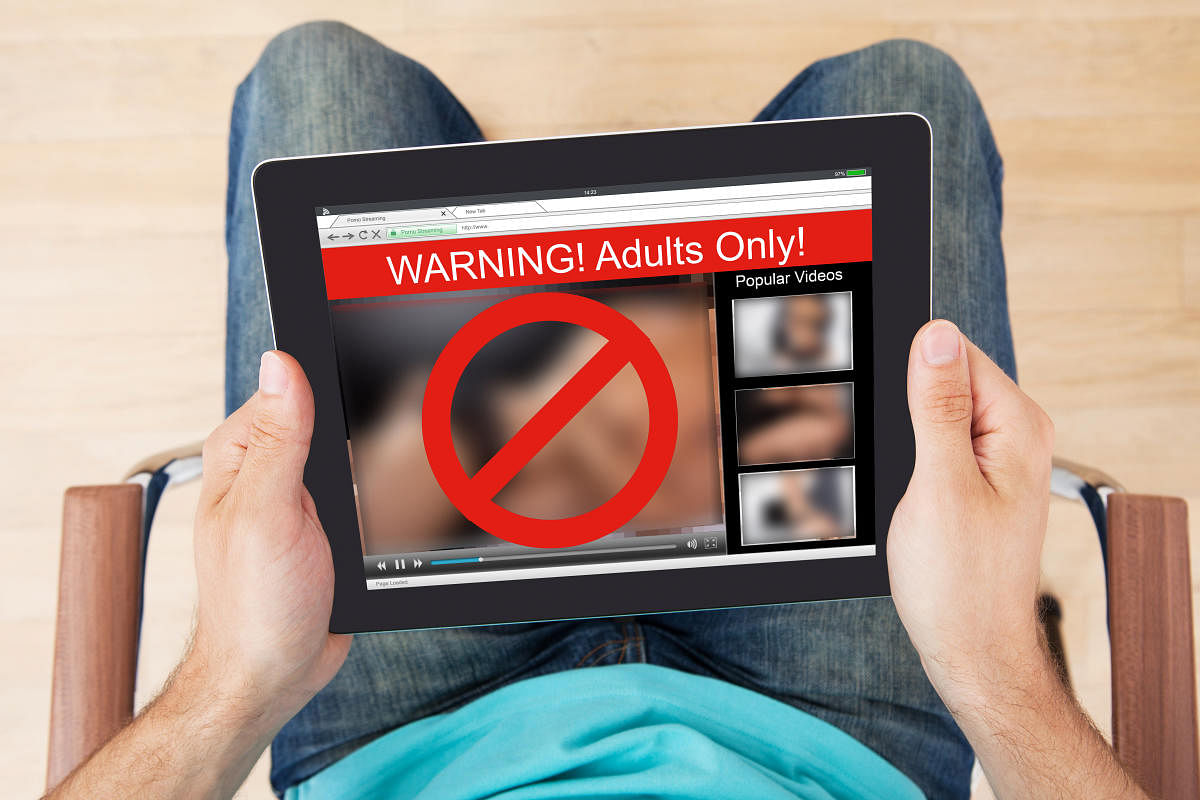
The annual report from Pornhub, the world’s most popular porn website, for 2018, ranked India as the third-largest consumer of porn, after the United States and the United Kingdom.
While watching porn boils down to personal choice, when it starts taking precedence over your responsibilities, relationships and general well-being, it can be classified as an addiction.
What are the causes?
Easy access to such content, thanks to the Internet is the main reason why porn addiction is on the rise, says Dr Roshan Jain, de-addiction specialist, Apollo Hospital.
However, he adds that most of his patients battling with this problem are older people and married couples.
“The issue often comes to light as the addiction begins to hamper relationships. The reason why we don’t see as many children coming in is because of the shame associated with it. Adults themselves don’t disclose the use and abuse of such content. When sexuality is so repressed, it becomes difficult to talk about these things,” he explains.
Even when it comes to light, it is usually bracketed under an umbrella term of ‘Internet addiction’, which makes it even more difficult to gauge the severity of the problem, he adds.
Dr Naveen Jayaram, consultant psychiatrist, Sakra Wold Hospital, however, says that he sees two children of 14-15 years coming in, on an average, in a month. “There could be more, but these things remain hidden for a long time. This behaviour may continue till adulthood, and then they might feel the need to seek help. Generally, we see more patients within the 18 to 24 age group.”
Is banning porn sites the solution?
The 2018 Pornhub data also revealed that even with the ban in place, India’s average time spent on the website in 2018 increased, albeit by only two seconds.
Why was the ban unable to make any difference? First, only a handful of sites were affected by this move.
Many sites found loopholes to get around the ban. Pornhub launched a mirror site called pornhub.net. Typing ‘https’ instead of ‘http’ helped many gain access to many of the restricted channels. Using proxy networks or Virtual Private Networks (VPNs) also helped one bypass these regulations.
Dr Jain believes that introducing sex education in schools will help bring about a change.
“It will be able to address the curiosity people have about sex. Repression leads to people seeking avenues for release,” he says, adding that the media and cinema also have a huge role to play in sensitising the youth.
“It is okay to show sexual content, but they need to do so with appropriate certification. In a country where sexuality is so repressed, showing women gyrating to item songs sends across a very confusing message, especially to teenagers,” he explains.
How can therapy help?
Identifying the trigger factor that activates the routine is the main aim of therapy, he says.
“It could be using phones late at night, or an ad featuring an explicit image. Understanding the root of the behaviour will help delink these factors.”
However, it is often difficult to counsel teenagers and kids, says Dr Jayaram. “They don’t co-operate. Very often they don’t think there is anything wrong with their behaviour; so it takes a lot of time to help them overcome the problem. In case the situation calls for it, we
introduce medication too,” he says.
How do you identify porn addiction?
Dr Roshan Jain, de-addiction specialist, Apollo Hospital, says, “Pornography addiction is a behavioural addiction, and it can be identified by the three Cs —
Compulsive behaviour: One is unable to stop the said behaviour.
Craving: They will constantly wish to engage in the activity, and the inability to do so will make them angsty.
Loss of Control: Someone who deals with the problem cannot limit the amount of time they spend watching such content. They may waste a large part of the day watching such videos and then feel guilty about it afterwards.
Dr Naveen Jayaram says that these addictions are difficult to identify. “It has to cause a substantial distress in their personal lives, which is why it is important for parents to monitor
their child’s behaviour closely,” he shares.
What can parents do?
Have honest, open communication with their children
Curiosity is normal, but parents should monitor screentime.
While children should have privacy, it should be within reason. If the child is spending hours locked inside their room, be alert.
Online alternatives to therapy
Reddit subs such as r/NoFap and r/Pornfree are popular among many who are battling with the problem. The channels provide people with a sense of community and allow them a safe space to share their problems anonymously. They encourage people to take part in challenges, like abstaining from going to porn sites for a week, and encouraging them to give up the habit entirely, over the course of time.
r/NoFap also has age segregated forums. Dr Jayaram says that he has had many patients who have come to him after seeking help online. “In the West, there are group therapies for such problems. Unfortunately, we don’t have this option here, yet. Sometimes, having a support system really helps,” he says.